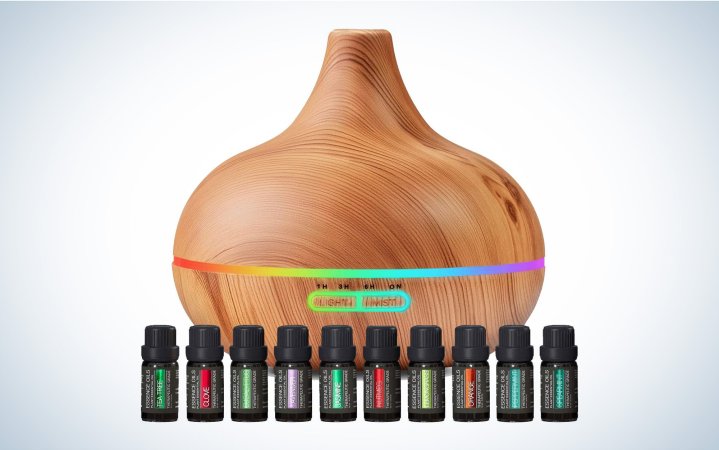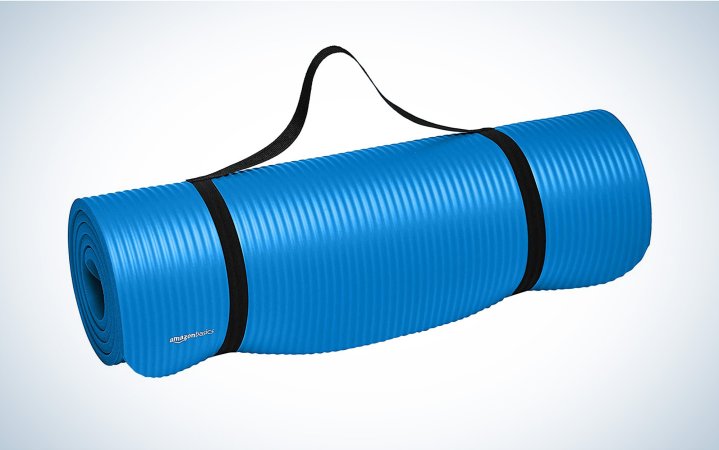We may earn revenue from the products available on this page and participate in affiliate programs. Learn more ›

It’s no secret that aging is inevitable. Whether it’s the fine lines that appear above our brows to emerging gray hairs on our heads, we all want to preserve our youth and fight off signs of aging. While many of the markers of age appear externally, our physiology and factors such as stress can either delay or accelerate the process.
One of these internal mechanisms is stress hormones, such as cortisol. In a study from the National Academy of Sciences, researchers found that stress reduces the rate of cell turnover and speeds up aging. Many of us are familiar with the idea that worry and anxiety can manifest in the color of our hair. It turns out that scientists have found evidence that backs up the idea that psychological stress can be a factor in causing premature grays.
But before you head to the drug store for some hair dye to hide those pesky grays, consider a new study from the Columbia University Vagelos College of Physicians and Surgeons. Researchers found that gray hair in some volunteers they studied reverted its natural color. The study found 300 changes in proteins when hair color changed, which ultimately boiled down to stress-related impacts on the cell. But when stress levels decreased, some samples regained their original color. This finding contradicts the longstanding belief that aging is a linear process, when it may be more adaptable than we once thought.
These findings are compelling for those of us who want to forever dip in the fountain of youth. But for those who have already gone almost completely gray, don’t expect your hair to revert to its natural color simply by cutting down on your worries. Reducing stress will be most effective in staving off the signs of aging when the process has begun but isn’t in full swing. Regardless, implementing stress management tools can improve your overall mental health and cut down on cortisol.
Why does our hair turn gray in the first place?
The timeline of graying can vary drastically from person to person depending on environmental factors (like stress), aging, and genetic predispositions. But when it comes down to the process of those white-silver strands popping up on our heads, the science is about the same. Our hair follicles generate melanin, which is what gives our hair pigment and color. As we age, our bodies produce less melanin, and hair follicles lose their color. Stress speeds up this process, so we may find more gray hairs during tense times in our lives.
How can we reduce stress to prevent gray hair?
There’s no one-size-fits-all solution to stress, as each of us experiences it differently. That said, you can regulate stress levels with a variety of routines or activities that promote better mental health. We recommend testing out different stress-reduction practices that can range from aromatherapy to practicing yoga to finding what strategy works best for you.
If you’ve ever felt a wave of calm wash over you after lighting a candle or queuing the diffuser, you’re not alone. Scent can play a role in regulating mood and stress levels—and now there’s research to back it up. This study from the School of Natural Resources and Environmental Sciences found a correlation between olfactory stimulation (sense of smell) and changes to mood and behavior.
Yoga: Meditative practices, exercise, and deep breathing are methods to reduce stress, so why not combine them into one activity? Whether it’s a brief 15-minute sun salutation before work or a full hour of unwinding on your mat, yoga has proven stress-relief benefits that are simple to incorporate into your daily routine.
Expressing gratitude: When times are tough it can be challenging to focus on the things you’re grateful for—whether it’s as simple as a home-cooked meal or time spent with family. This study found a connection between expressing gratitude and a reduction in perceived stress. A simple reminder of all the things you have in life can put a stressful day, week, or year into perspective.
Turn on some tunes: It shouldn’t come as a surprise that listening to soothing music or even your favorite songs can reduce psychological stress. Plug into a playlist, tune out of the outside world, and create more calm. Music can turn your focus elsewhere, even if only for a few minutes. Here are some options we like to help you reduce your stress.




